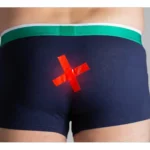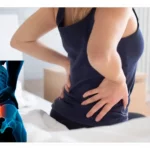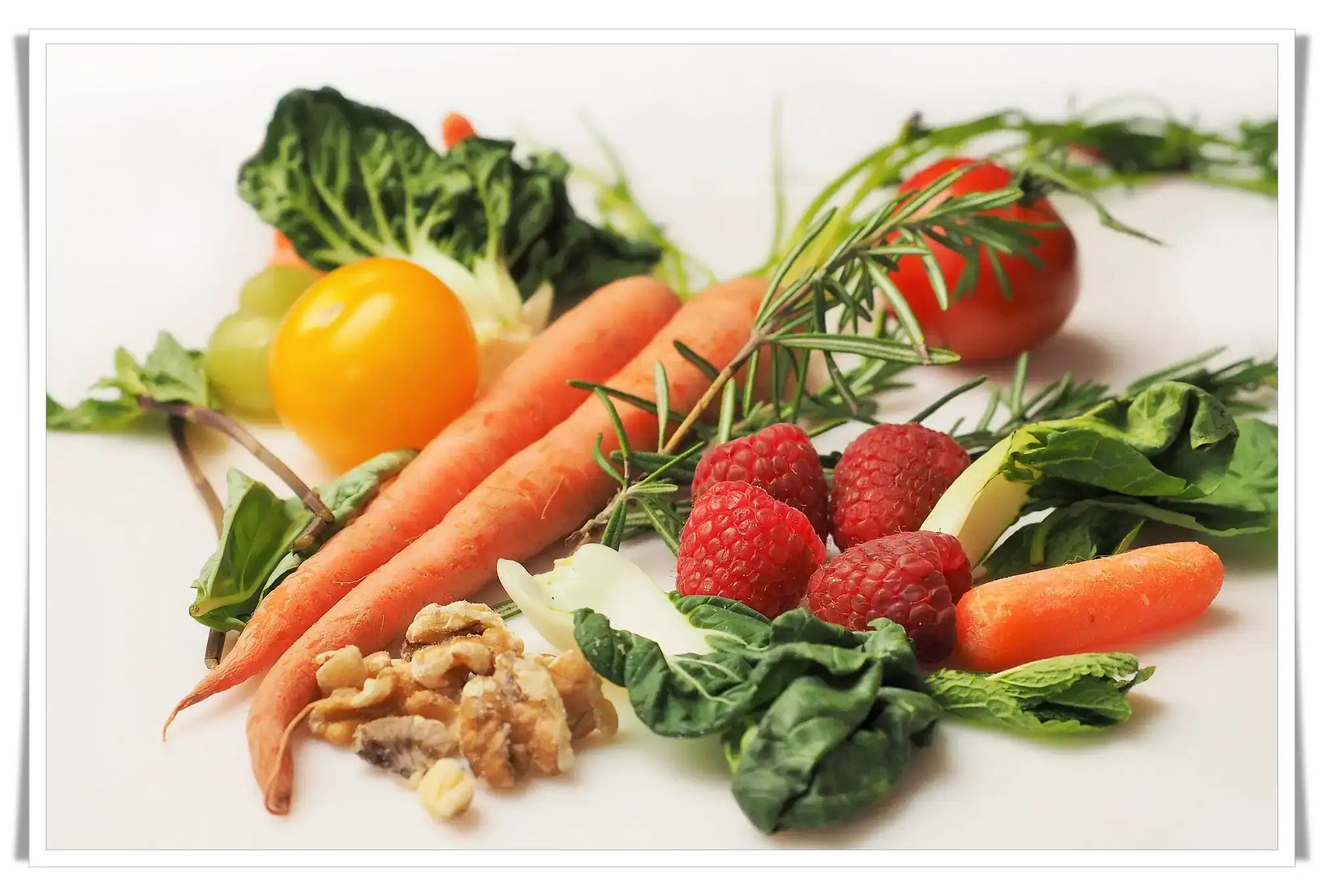What Is Bloating?
Bloating is a feeling of fullness or swelling in the abdomen. It is a common digestive complaint that can cause discomfort and make clothes feel tight. Bloating can be caused by a variety of factors, such as eating too much, eating foods that are difficult to digest, or eating foods that produce gas. Constipation, lactose intolerance, and certain medical conditions, such as irritable bowel syndrome (IBS) and celiac disease, can also cause bloating.
Please watch the video: The Best Tips To Avoid Bloating

The Best Tips To Avoid Bloating
Symptoms of bloating can include:
- A feeling of fullness or pressure in the abdomen
- Abdominal pain or discomfort
- Belching or passing gas
- A swollen or distended abdomen
- Tight clothing feeling uncomfortable
Bloating can often be relieved by making dietary changes, such as eating smaller, more frequent meals, avoiding foods that are known to cause bloating, and getting regular exercise. In some cases, over-the-counter or prescription medications may be necessary to relieve bloating. If bloating is accompanied by other symptoms, such as abdominal pain, difficulty swallowing, or weight loss, it is important to consult a healthcare provider for further evaluation and treatment.
How To Avoid Bloating?
You may have heard about it before but did you know there are ways to avoid bloating? Read on to discover some easy tips. Are you looking for ways to prevent bloat? We've got you covered. Do you suffer from bloating? Then read our article about what causes it and how to treat it. Bloating is not just an unpleasant side effect of pregnancy; it can also be caused by other factors too.
Please watch the video: The Best Tips To Avoid Bloating

How To Avoid Bloating?
Here are a few tips for avoiding bloating:
- Eat smaller, more frequent meals: Eating large meals can cause bloating, so try eating smaller, more frequent meals instead.
- Avoid gas-producing foods: Some foods, such as beans, cabbage, and broccoli, can produce gas and cause bloating. If these foods are known to cause bloating for you, try to limit your intake or choose alternative options.
- Eat slowly and chew your food thoroughly: Eating quickly or not chewing your food well can cause you to swallow air, which can lead to bloating.
- Avoid carbonated drinks: Carbonated drinks, such as soda and sparkling water, can cause bloating because they contain carbon dioxide gas.
- Get regular exercise: Exercise can help to improve digestion and reduce bloating.
- Drink plenty of water: Water can help to flush out the digestive system and reduce bloating.
- Avoid tight clothing: Tight clothing can compress the abdomen and worsen bloating.
By following these tips, you can help to reduce the risk of bloating and improve overall digestive health. If you continue to experience bloating despite making these changes, it is important to consult a healthcare provider for further evaluation and treatment.
The feeling of bloating, extremely unpleasant, appears after eating foods that favor the accumulation of gas in the stomach, sometimes even becoming painful. It is frequently encountered because many people include in their diet even foods that produce this sensation.
There are days when we feel uncomfortable with our bodies. It seems that we have increased a few more measurements, especially around the belly, which looks swollen. The reasons can be diverse, like the retention of liquids or gases, among others. If you feel this is the case for you, you may find the solution in some of the 6 tricks to avoid bloating that we have for you.
What organs does bloating affect?
Digestive Tract
Assembly of the cavity organs of the digestive system. Starting from top to bottom, the following are distinguished: the oral cavity, the pharynx, the oesophagus, the stomach, the small intestine (duodenum, jejunum, ileum), the colon - which ends with the sigmoid - the rectum and the anus.
Please watch the video: The Best Tips To Avoid Bloating

How To Avoid Bloating?
Any build-up of digestive contents along the digestive tract will leave less room for normal amounts of gas to process through.
The Lungs
The lungs are located in the chest, not the abdomen, and do not play a role in the digestive process. While bloating can cause discomfort and make clothes feel tight, it does not typically affect the lungs or cause difficulty breathing.
If you are experiencing difficulty breathing or chest pain in addition to bloating, it is important to seek medical attention right away, as these symptoms could be a sign of a more serious condition. However, if you are experiencing bloating without any other concerning symptoms, it is likely due to a digestive issue and can often be relieved by making dietary changes and getting regular exercise. If bloating persists despite these measures, it is important to consult a healthcare provider for further evaluation and treatment.
Please watch the video: The Best Tips To Avoid Bloating

How To Avoid Bloating?
Bloating is a feeling of fullness or swelling in the abdomen. It is not a disease or a specific condition, but rather a symptom that can be caused by a variety of factors. Bloating can affect any of the organs in the abdomen, including the stomach, small intestine, colon, and liver. It can also be caused by conditions that affect the muscles and tissues in the abdomen, such as irritable bowel syndrome (IBS) or celiac disease.
In most cases, bloating is not a serious concern and can be relieved by making dietary changes, such as eating smaller, more frequent meals, avoiding gas-producing foods, and getting regular exercise. However, if bloating is accompanied by other symptoms, such as abdominal pain, difficulty swallowing, or weight loss, it is important to consult a healthcare provider for further evaluation and treatment.
Irritable bowel syndrome
Irritable bowel syndrome (IBS) is a common digestive condition characterized by symptoms like abdominal pain, discomfort, diarrhoea, and constipation.
How To Avoid Bloating (read more about bloating!)
1. Avoid bread and confectionery sweets
Carbohydrates such as white bread, rice, cookies, as well as cakes, and other sweets contain gluten and yeast, which cause digestion to become slow and make you feel heavy. It is best to eat baked pastry moderately and occasionally. In addition, cakes contain large amounts of sugars and fats, which makes them doubly bad: in fact, you are gaining weight and, in addition, feel that your belly's swelling while you eat them.
Please watch the video: The Best Tips To Avoid Bloating

How To Avoid Bloating?
2. Sleep enough and avoid constipation.
During your nocturnal rest, your bowel functions normalize. That is why it is important to rest for 8 hours since many times constipation is caused by stress, which is released when we sleep. Sleep well, free yourself from constipation, and this will result in less swelling.
3. Do not "swallow air" and say goodbye to chewing gum
In addition to your high sugar level that will make you gain weight, chewing gum or sucking candies will fill you with gas. The same goes for drinking sorbet or eating fast. These habits cause swelling. Better to put them aside and feel comfortable without unnecessary swellings.
4. Drink plenty of water and avoid fluid retention (oedema)
Water cleanses your body and helps balance hormones that are not working well and cause fluid retention, which often makes us feel bloated. In addition, drinking several glasses of water during the day will help detoxify your body and, indirectly, lose weight. Of course, do not drink too much water before bed or you will have to get up to go to the bathroom during the night.
Please watch the video: The Best Tips To Avoid Bloating

How To Avoid Bloating?
5. Avoid some condiments and other meals like...
Black pepper, nutmeg, tomato sauce, vinegar, mustard, onion, and spicy sauces, as they increase stomach acid and generate the feeling that your food is coming back into your throat, as well as an uncomfortable swelling. On the other hand, consuming fiber is good, but it is also a double-edged sword, as it helps regulate intestinal transit and prevents abdominal swelling, yet ingesting large amounts can cause flatulence and an upset stomach.
If you want to include fiber in your diet, do it moderately a few times until your body gets used to it. In addition, vegetables such as broccoli and cauliflower also generate gases that can make you feel bloated.
6. Eat slowly and in small quantities
If your plates of food are large, in addition to overeating, it will take longer to digest the food. That is why it is best to eat in small quantities well distributed throughout the day, to help your stomach digest properly and without fuss. In addition, nutritionists recommend eating 5 times a day in order to have the feeling of satiety and not to munch on sweets or other snacks. The best thing about that is that you will avoid swelling and weight gain!
Please watch the video: The Best Tips To Avoid Bloating

How To Avoid Bloating?
Remember that swelling is a symptom that something else is happening in your body. Whether it's a digestive problem, chronic constipation, or weight problems, it's best to always go to the doctor to get a clear diagnosis and start treating the underlying problem.
Other food to avoid
Cruciferous vegetables
Cabbage and broccoli, which belong to the category of cruciferous vegetables, contain raffinose, a compound that remains undigested until the bacteria in the intestines ferment it, producing the gases that make you bloated.
Nutrition experts recommend combining these foods with some that contain fiber, which helps with better digestion.
I recommend you to read ''Cholesterol. The Best Way To Control It!'', too.
Carbonated drinks (sparkling)
Because they lead to the appearance of intestinal gases, carbonated drinks are also responsible for the appearance of the feeling of bloating. Also, the acid contained in them attacks the enamel of the teeth, which predisposes to the appearance of caries. You can replace these drinks with water, tea, and natural fruit juices.
Kidney beans
Please watch the video: The Best Tips To Avoid Bloating

How To Avoid Bloating?
How To Avoid Bloating?
Food known to cause bloating is kidney beans, due to the content of polysaccharides, which cannot be digested by the enzymes found in the stomach, which leads to the accumulation of gas. To reduce the unpleasant effects, you can boil the beans twice, in stages of 20-30 minutes each.
Dairy products
If you feel your stomach bloated after eating yogurt, a few slices of cheese, or after drinking a glass of milk, this may mean that you are lactose intolerant, characterized by the inability to digest the disaccharide in milk.
The apples
It abounds in vitamins and minerals, but apples also lead to the appearance of bloating, due to the content of sorbitol and fructose, sugars that many people do not tolerate. It is best to eat them separately, not during meals, and not to overdo it. Other fruits that fall into the category of foods that balloon are pears, peaches, and plums.
Fatty foods
Visible fat in meat (saturated fat), fried foods, commercial sauces, mayonnaise, sausages, and margarine in pastries or confectionery are the cause of obesity and all kinds of diseases, as well as bloating because they need more time to be digestible compared to carbohydrates and proteins and therefore stay longer in the stomach.
Moreover, in combination with certain foods (mainly refined carbohydrates - concentrated sugar, corn syrup, starch - used on a large scale in the entire food industry today and present in almost all processed foods in commerce) they become indigestible and abdominal discomfort becomes severe to bear.
Please watch the video: The Best Tips To Avoid Bloating

How To Avoid Bloating?
Insoluble Fibers
Constipation affects about 14% of people worldwide, causing symptoms like infrequent bowel movements, excessive straining, hard stools, and bloating. In particular, it can lead to bloating because the non-digestible components of food spend longer in your colon and are thus subject to more fermentation by bacteria. Often, you can improve symptoms of constipation by increasing your fiber intake. Aim for 18–30 grams per day of both soluble and insoluble fiber from whole grains, fruits, vegetables, nuts, and seeds.
Sugar alcohols
Chocolate candies with rum or bars with rum or cherry flavors are manufactured with the help of chemicals. These chemicals are called sugar alcohols, and they're found in tons of sugar-free snacks, like candies and gums, as well as in many of the dressings, beverages, and condiments you eat every day.

How To Avoid Bloating?
If you occasionally get bloated, turn to a pill that contains alpha-galactosidase, an enzyme that breaks down indigestible sugars from beans, lentils, and vegetables. Tablets or capsules containing simethicone can also help relieve excess gas.
Bloating is not serious, but a warning sign of unhealthy eating habits, especially if it occurs daily.
In most cases, it is easy to control by slowing down the pace when serving the meal, controlling portions, reducing excess fats and foods that cause bloating, a progressive intake of fiber, and giving up habits that, in any case, destroy health (smoking, drinking with a straw, especially carbonated, lollipop or chewing gum, fats combined with starch).
Keep a food diary, identify what makes you bloated and make the necessary changes to eliminate this discomfort.
Foods To Help In Case Of Bloating
Cucumbers contain quercetin, a flavonoid antioxidant that aids in the reduction of bloating. Cucumbers decrease pro-inflammatory enzyme activity. Cucumbers should be consumed raw or in the form of fresh.
Fennel seeds - one of the fennel chemicals relieves intestinal spasms, allowing gas to be absorbed and so decreasing bloating. Fennel seeds can be used in bread, sauces, and meals.
Ginger is an anti-inflammatory and digestive stimulant in nature. It reduces bloating by relaxing the muscles in the digestive system. It also contains an enzyme that absorbs proteins, minimizing abdominal swelling. This root is readily used in salads or drinks.
Teas made from mint and chamomile have a calming effect on the stomach muscles because they absorb stored gases. Mint and chamomile both relieve gastrointestinal stress by acting as anti-inflammatory and antispasmodic agents.
Please watch the video: The Best Tips To Avoid Bloating

How To Avoid Bloating?
Bananas, like avocados, kiwis, oranges, and pistachios, are high in protein. By controlling sodium levels, it prevents fluid retention in the body. Bananas also contain soluble fiber, which can help to alleviate or prevent constipation.
Nutmeg - reduces flatulence and accelerates digestion.
Brown rice - a complex carbohydrate that takes a long time to digest, brown rice delivers a sustained sensation of satisfaction. It also reduces hyperacidity induced by gastric fluids.
Sunflower seeds are high in folic acid, trans fats, vitamin E, selenium, and copper, and they help to avoid bloating. It is eaten uncooked, without salt, in tiny amounts.
Please watch the video: The Best Tips To Avoid Bloating

How To Avoid Bloating?
Graham bread - wholemeal flour rich in bran, which contains fibers, absorbs excess gastric juice, stabilizes blood sugar levels, and produces a sense of fullness.
In conclusion,
Bloating is a common digestive complaint that can cause discomfort and make clothes feel tight. It can be caused by a variety of factors, including eating too much, eating foods that are difficult to digest, or eating foods that produce gas.
Constipation, lactose intolerance, and certain medical conditions can also cause bloating. To avoid bloating, it is important to eat smaller, more frequent meals, avoid gas-producing foods, eat slowly and chew your food thoroughly, avoid carbonated drinks, get regular exercise, drink plenty of water, and avoid tight clothing. If bloating persists despite these measures, it is important to consult a healthcare provider for further evaluation and treatment. By following these tips, you can help to reduce the risk of bloating and improve overall digestive health.
If you have questions or want to comment, please leave them below and I will answer as soon as I can. Thank you!





Pingback: 6 Best Tips, Strange but Useful For Natural Beauty - bc-educate
The Best Tips To Avoid Bloating is an article that gives you the best tips to prevent bloating and also includes important information about healthy living. I love this article because it helps me stay fit, healthy, and happy! It is full of great information on how to avoid being bloated and I like knowing that there are people out there who can help me live healthier.
Hello, thank you for the great blog today.Have a nice day샌즈카지노“
Thank you very much for sharing, I learned a lot from your article. Very cool. Thanks. nimabi
Wow, incredible weblog layout! How long have you ever been running a blog for?
you made running a blog glance easy. The entire glance of your site is
excellent, let alone the content! You can see similar:
e-commerce and here
dobry sklep
Nice post. I learn something totally new and challenging on sites I stumbleupon everyday.
It will always be useful to read articles from other authors and practice something from their websites.
I saw similar here: dobry sklep and also here:
dobry sklep